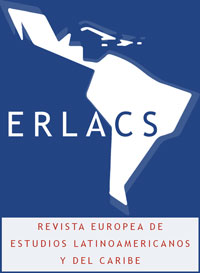Local democracy and Participation in Post-Authoritarian Chile
DOI:
https://doi.org/10.18352/erlacs.9630Keywords:
Chile, political participation, civil society, political culture, municipal governance, centralism, participación política, sociedad civil, cultura política, gobiernos municipales, centralismoAbstract
Since the democratic restoration in 1990, Chilean politics are marked by political stability, macroeconomic prosperity, and a dramatic reduction of poverty. The government has realized these successes without creating real participatory mechanisms or citizens’ involvement. That is a unique case in the Latin American context and challenges the widespread conviction that citizens’ active participation is a necessary tool to deepen democracy and to include the poor in society. This article explores a series of historical, sociological, and political factors that can help to understand why the current Chilean democracy has not created such channels of citizens’ participation. The Chilean case illustrates that participatory governance is only one way of achieving the goals of a democratic society and that citizens’ participation may be inappropriate if there is a risk of political destabilization and if it is unwanted by a majority of the population.
Resumen: Democracia local y participación en el Chile post-autoritario
Desde el retorno de la democracia en 1990, la política chilena se ha caracterizado por la estabilidad política, la prosperidad macroeconómica y una fuerte reducción de la pobreza. El gobierno ha logrado estos tres éxitos sin crear ningún mecanismo de participación real o de participación ciudadana. Este es un caso único en el contexto latinoamericano y pone en cuestión la difundida creencia de que la participación activa de los ciudadanos es una herramienta necesaria para profundizar la democracia e integrar a los pobres en la sociedad. Este artículo explora una serie de factores históricos, sociológicos y políticos que pueden ayudar a entender porqué la actual democracia chilena no ha creado esos canales de participación ciudadana. El caso chileno ilustra que la gobernabilidad participativa es sólo un modo de alcanzar los objetivos de una sociedad democrática y que la participación de los ciudadanos puede ser inapropiada si existe el riesgo de desestabilización política y si no es deseada por la mayoría de la población.Downloads
Published
Issue
Section
License
Copyright Notice | Nota de derechos
ERLACS - The European Review of Latin American and Caribbean Studies applies the Creative Commons Attribution 4.0 Unported License (CC BY 4.0) to all articles, published in or after April 2013.
ERLACS - La Revista Europea de Estudios Latinoamericanos y del Caribe aplica la licencia Creative Commons Attribution 4.0 Unported (CC BY 4.0) a todos los artículos publicados en abril de 2013 o posteriores.




